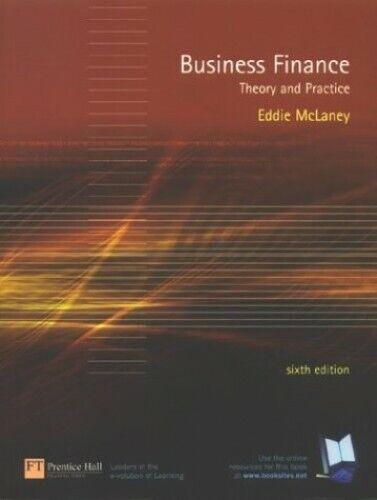Question
6. Berck & Helfand Chapter 4 #2 a. Gasoline consumption decreases when Price increases: price is in the denominator, so the value gets smaller as
6. Berck & Helfand Chapter 4 #2 a. Gasoline consumption decreases when Price increases: price is in the denominator, so the value gets smaller as P gets bigger. b. Gasoline is a normal good: If I increases, so does QD. a. When PE goes up, QD goes up too. Since people buy more gasoline when the price of ethanol goes up, ethanol and gasoline are substitutes. b. Each individuals demand for gasoline is 1/20 of the quantity above. Thus, Q 10 I PE/(20 P) I PE/(2 P), where the i superscript is for an individual.
c. QD 10 I PE/P 10 10 2.40/2.40 100 gallons. An individuals consumption is 1/20 of that amount, or 2 gallons. d. The price of gasoline will become $2.40 0.60 $3.00/gallon. QD 10 I PE/P 10 10 2.40/3 80 gallons. Revenue will be $0.60 80 $48.00. e. Back to intro econ for her! Consumers will buy less gasoline because of the price increase. As a result, revenues from the tax will be lower than they would be if consumers bought as much gasoline as they do in (e). f. QD 10 I PE/P. Now, QD 80 10 10 PE/2.40, or PE $1.92. The subsidy would be $2.40 1.92 = $0.48/gallon. If consumption of ethanol goes up by 20 gallons (the amount that gasoline consumption went down), the subsidy will cost $0.48 20 $9.60. g. Consumers and farmers prefer the ethanol subsidy, because they get lower prices and higher (or, in consumers case, the same) quantities. Gasoline producers may prefer the ethanol subsidy too: With the gasoline tax, its possible they would not, at least initially, be able to pass along the entire tax. In the long run, though (as well see in future chapters), in both cases the gasoline producers will get $2.40/gallon and will sell 80 gallons and thus be indifferent. h. The opportunity costs associated with the subsidy are whatever else the government payment would have purchased: parks, education, defense, tax cuts, etc. The opportunity costs of the tax are whatever else consumers would have bought with the money that instead went to higher gasoline prices.
Step by Step Solution
There are 3 Steps involved in it
Step: 1

Get Instant Access to Expert-Tailored Solutions
See step-by-step solutions with expert insights and AI powered tools for academic success
Step: 2

Step: 3

Ace Your Homework with AI
Get the answers you need in no time with our AI-driven, step-by-step assistance
Get Started


